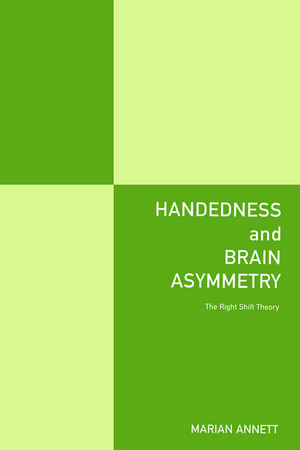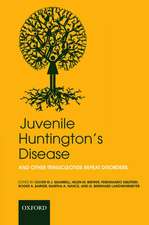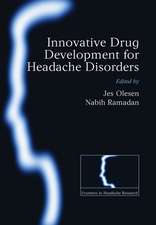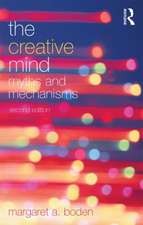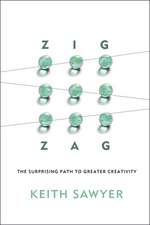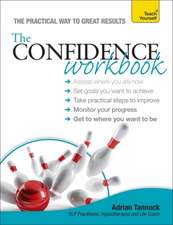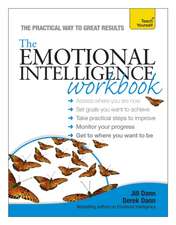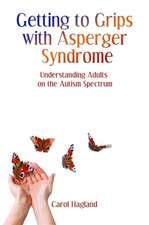Handedness and Brain Asymmetry: The Right Shift Theory
Autor Marian Annetten Limba Engleză Paperback – 21 noi 2013
Are symmetries for hand and brain associated with characteristics such as intelligence, motor skill, spatial reasoning or skill at sports?
In this follow up to the influential Left, Right Hand and Brain (1985) Marian Annett draws on a working lifetime of research to help provide answers to crucial questions. Central to her argument is the Right Shift Theory - her original and innovative contribution to the field that seeks to explain the relationships between left-and right-handedness and left-and right-brain specialisation. The theory proposes that handedness in humans and our non-human primate relations depends on chance but that chance is weighted towards right-handedness in most people by an agent of right-hemisphere disadvantage. It argues for the existence of a single gene for right shift (RS+) that evolved in humans to aid the growth of speech in the left hemisphere of the brain.
The Right Shift Theory has possible implications for a wide range of questions about human abilities and disabilities, including verbal and non verbal intelligence, educational progress and dyslexia, spatial reasoning, sporting skills and mental illness. It continues to be at the cutting edge of research, solving problems and generating new avenues of investigation - most recently the surprising idea that a mutant RS+ gene might be involved in the causes of schizophrenia and autism.
Handedness and Brain Asymmetry will make fascinating reading for students and researchers in psychology and neurology, educationalists, and anyone with a keen interest in why people have different talents and weaknesses.
| Toate formatele și edițiile | Preț | Express |
|---|---|---|
| Paperback (1) | 326.69 lei 6-8 săpt. | |
| Taylor & Francis – 21 noi 2013 | 326.69 lei 6-8 săpt. | |
| Hardback (1) | 770.74 lei 6-8 săpt. | |
| Taylor & Francis – 20 dec 2001 | 770.74 lei 6-8 săpt. |
Preț: 326.69 lei
Preț vechi: 418.36 lei
-22% Nou
Puncte Express: 490
Preț estimativ în valută:
62.52€ • 64.72$ • 52.84£
62.52€ • 64.72$ • 52.84£
Carte tipărită la comandă
Livrare economică 05-19 martie
Preluare comenzi: 021 569.72.76
Specificații
ISBN-13: 9780415648264
ISBN-10: 0415648262
Pagini: 416
Ilustrații: black & white tables, figures
Dimensiuni: 156 x 234 x 22 mm
Greutate: 0.59 kg
Ediția:1
Editura: Taylor & Francis
Colecția Psychology Press
Locul publicării:Oxford, United Kingdom
ISBN-10: 0415648262
Pagini: 416
Ilustrații: black & white tables, figures
Dimensiuni: 156 x 234 x 22 mm
Greutate: 0.59 kg
Ediția:1
Editura: Taylor & Francis
Colecția Psychology Press
Locul publicării:Oxford, United Kingdom
Public țintă
Postgraduate and UndergraduateCuprins
Introduction. The Puzzle of Handedness and Cerebral Speech. The Right Shift Theory. Human Handedness: Discrete Types or Continuous Varieties? The Right Shift Theory of Handedness: Chance Plus or Minus Right Loading. A Right Shift Factor for Left Cerebral Dominance. The Single Gene Theory of Right Shift. Explorations in the Light of the Theory. Stability and Change: Handedness with Age, Sex and Time. A Single Gene with Variable Expression for Genotype, Sex and Twinning. Other Asymmetries of Brain and Behaviour. Predicting Associations Between Asymmetries. A Genetic Balanced Polymorphism with Heterozygote Advantage. Why Right Shift and Why Genetic Variability? The Advantages and Disadvantages of the RS+ Gene. Heterozygote Advantage. What are the Disadvantages of Right Shift? Spatial and Mathematical Reasoning, Art, Music, Surgery and Sport. Speech, Phonology and Varieties of Dyslexia: The Costs and Benefits of the RS+ Gene. Schizophrenia and Autism: The Theory of an Agnosic RS+ Gene. Independent Replications, Challenges and Theories. Independent Tests and Challenges. Alternative Theories or Variations on a Theme? Conclusions. Summary: What, How, and Why? Appendices.
Recenzii
'Annett's latest book provides a very readable comprehensive review of her RS theory of handedness and brain asymmetry, complete with a substantial survey of the evidence that supports the theory.' - Laterality
'This is a milestone contribution. It pulls the field together around the right shift theory and sets the course for future investigation.' - Tim Crow, University of Oxford
'Few can afford to ignore Annett's theory ... she has cast her stamp upon the field of handedness as no other investigator has done.' - Alan Beaton, University of Swansea
'Annett's new book celebrates a solid, life-time research accomplishment based on a stunning insight.' - Michael Corballis, Cortex
'A worthwhile read...an admirable attempt to account for a very wide range of laterality phenomena...Annett's description of her Right Shift theory is an entertaining and substantial contribution to the laterality literature. Annett's ambition should be commended and rewarded.' - Lorin Elias, Cortex
'Annett's latest book provides a very readable comprehensive review of her RS theory of handedness and brain asymmetry, complete with a substantial survey of the evidence that supports the theory.' - Laterality
'This is a milestone contribution. It pulls the field together around the right shift theory and sets the course for future investigation.' - Tim Crow, University of Oxford
'Few can afford to ignore Annett's theory ... she has cast her stamp upon the field of handedness as no other investigator has done.' - Alan Beaton, University of Swansea
'Annett's new book celebrates a solid, life-time research accomplishment based on a stunning insight.' - Michael Corballis, Cortex
'A worthwhile read...an admirable attempt to account for a very wide range of laterality phenomena...Annett's description of her Right Shift theory is an entertaining and substantial contribution to the laterality literature. Annett's ambition should be commended and rewarded.' - Lorin Elias, Cortex
'Annett's latest book provides a very readable comprehensive review of her RS theory of handedness and brain asymmetry, complete with a substantial survey of the evidence that supports the theory.' - Laterality
Descriere
This book will make fascinating reading for students and researchers in psychology and neurology, educationalists, and anyone with a keen interest in why people have different talents and weaknesses.
